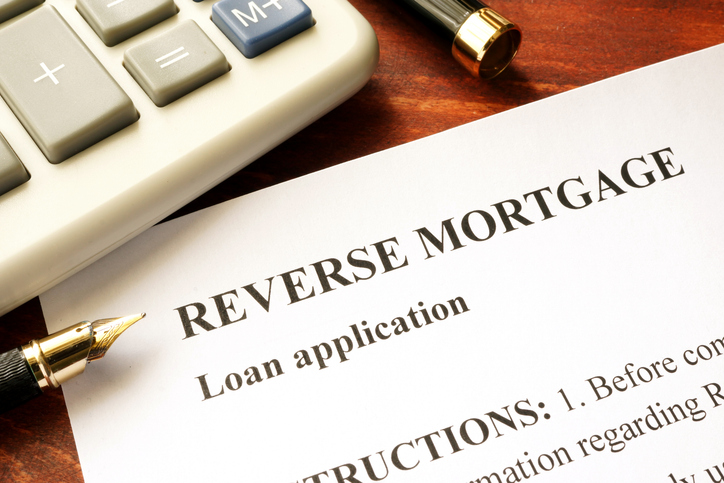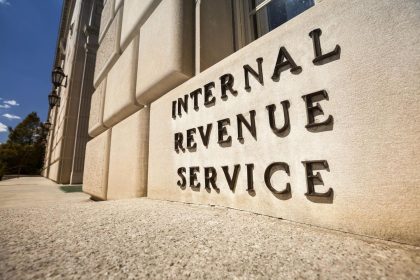A reverse mortgage can be a useful way to access the value of your home without having to sell it. This is a form of lending intended for, and typically restricted to, older households. That said, it’s important to be very careful with this product. Reverse mortgages are more complicated than frequently advertised, and could be used as a vehicle for scams and predatory lending. However, the good news is that a reverse mortgage is simple from a tax standpoint. The money you get from a reverse mortgage is a loan, not enrichment. As a result, you do not owe any taxes on it. And, when you or your estate repays this loan, you might receive a deduction for the interest provided that you spent this money improving the property. Here’s what you need to know.
Before you take a reverse mortgage, it may be worth consulting a financial advisors to determine if this is a good fit for your financial needs.
What Is a Reverse Mortgage?
A reverse mortgage is a specialized form of home loan designed for retirees and seniors. With a reverse mortgage, you receive a loan based on the equity you have in your house. Equity is defined as the home’s value, generally determined by sale price, bank assessment, or property tax assessment, less any amount you currently owe. For example, say that you have a house valued at $500,000 on which you still owe $100,000. You would have $400,000 of equity in this house.
When you take a reverse mortgage, the lender gives you a loan based on this home equity. In exchange, they receive a claim on your house up to the value of the loan. The loan will also include an interest rate, a compounding schedule and, typically, origination fees. There are typically three types of reverse mortgages:
- Lump sum. You receive a single payment all at once up to the equity value. For example, if you have $400,000 worth of equity in your home, the lender might give you $360,000 (90% of your equity).
- Line of credit. You can borrow up to the value of your home at any given time, in the same way a credit card operates. For example, if you have $400,000 worth of equity in your home, you might borrow freely as long as the account balance is below $360,000.
- Structured payments. You receive a series of payments over time equaling the value of your home. For example, if you have $400,000 worth of equity in your home you might receive $1,200 per month for the next 25 years ($1,200 x 12 x 25 = $360,000)
Typically to receive a reverse mortgage you must be age 62 or older. This is a requirement of the Department of Housing and Urban Development, which secures most reverse mortgages.
Unlike most loans, you do not make regular payments on a reverse mortgage. The debt will grow over time as the lender compounds interest against your current balance, typically on a monthly basis. You then pay the loan all at once at the end of the loan period. While in some cases this can be a pre-defined amount of time, with most reverse mortgages you repay the loan either if you move out of the house for any reason (including medical care) or at your death (in which case your estate will make payment).
The loan is secured by your house itself. The lender receives an interest in the home, in the same way that the lender has an interest in the house with a standard mortgage. When the loan is due, you can either make payment in cash or the lender receives title to the house.
As a result, a reverse mortgage lender will require you to keep the house in good condition and to stay current on all property taxes. This is often a way for predatory lenders to take advantage of borrowers. Bad actors will claim that the house has fallen into disrepair or make other escalating demands to try and manufacture a default and seize the property.
Reverse Mortgage Tax Implications

A reverse mortgage has little impact on your taxes. You do not pay taxes on the money you receive from a reverse mortgage. Since this is a loan, a reverse mortgage does not increase your wealth. You repay the principal, and then pay the lender in the form of interest and fees. (In fact, like all interest-bearing loans, the borrowing itself makes you poorer.) As a result, there is no taxable event involved with receiving the money from a reverse mortgage.
For the same reason, a reverse mortgage does not impact your other income taxes, nor does it affect your Social Security, Medicare or any benefits associated with your taxable income. This is because a reverse mortgage is not included in your taxable income. However, a reverse mortgage can affect means-tested programs that measure your available assets, such as Medicaid. If you have cash on hand from a reverse mortgage, a means-tested program may include that cash as part of your assets regardless of the associated debt.
If, for some reason, your lender forgives this loan then the IRS would likely consider this a tax event. This has to do with the structure of all loans, which are considered income in the year they are forgiven, and is not unique to a reverse mortgage.
When you repay the loan on a reverse mortgage, or when your estate does so, in some unusual cases you might be able to deduct the interest paid on this debt. You cannot take this deduction until you pay the loan, and it is limited only to taxpayers who itemize their deductions. You also can only deduct portions of the loan that you used to substantially improve the property, because the IRS considers this a home equity loan. As a result, this is an unusual deduction, since most households use a reverse mortgage for income replacement.
Bottom Line

A reverse mortgage has no significant tax implications for most households. You do not pay taxes on the proceeds of this loan, as borrowed funds do not increase your wealth. You can deduct interest payments if you itemize your taxes, but only to the extent that you used the reverse mortgage funds to substantially improve the property.
Retirement Cash Management Tips
- Managing your investments while in retirement is just as important as the investments that lead up to this phase of life. Here are some ways to approach your portfolio once you’ve begun to rely on it.
- A financial advisor can help you build a comprehensive retirement plan. Finding a financial advisor doesn’t have to be hard. SmartAsset’s free tool matches you with up to three vetted financial advisors who serve your area, and you can have a free introductory call with your advisor matches to decide which one you feel is right for you. If you’re ready to find an advisor who can help you achieve your financial goals, get started now.
Photo credit: ©iStock.com/fstop123, ©iStock.com/designer491, ©iStock.com/shapecharge
Read the full article here

















